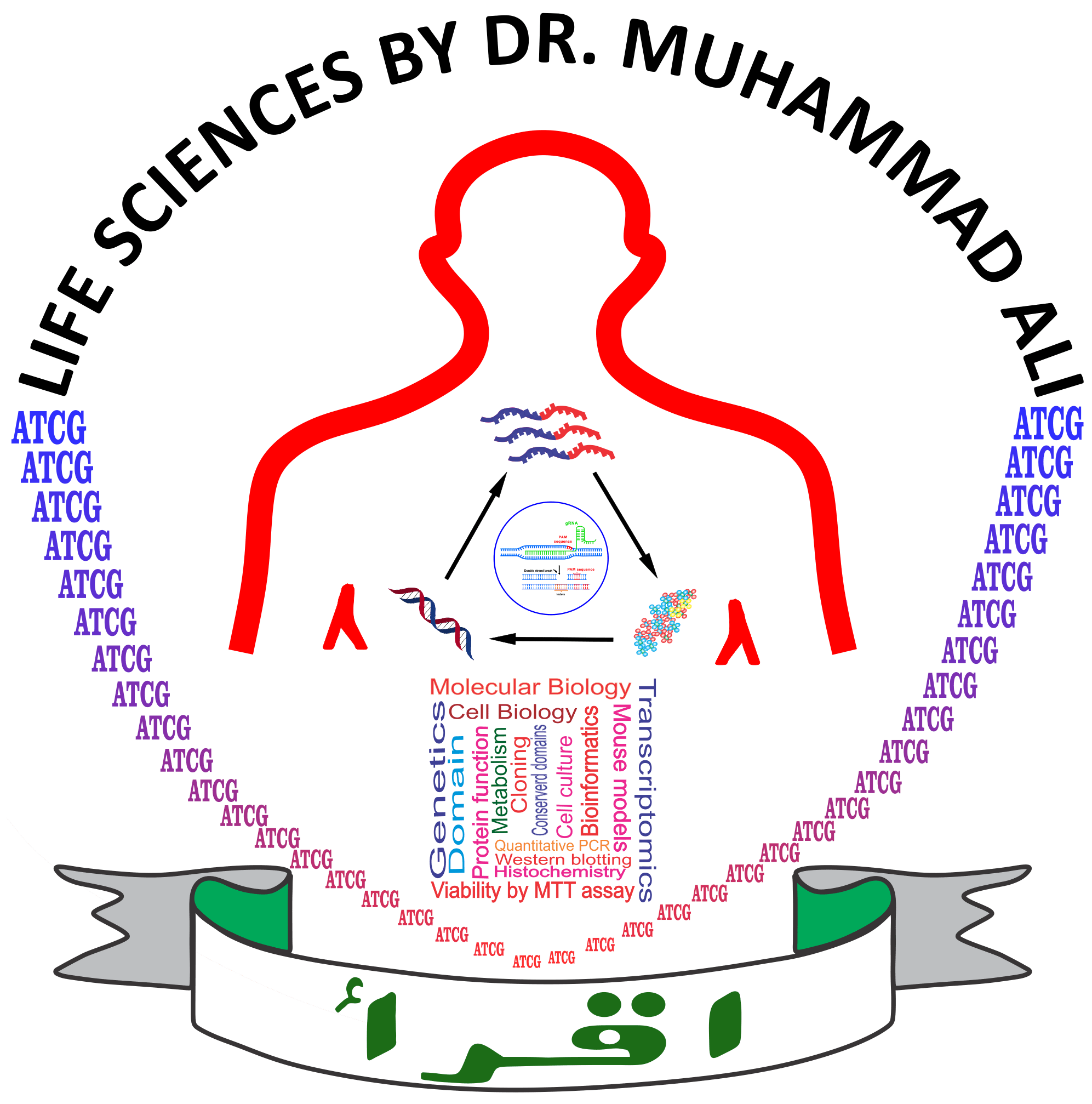Mid-term, syllabus of Biochem-303: Introduction of metabolism; Carbohydrate metabolism: Glycolysis and Krebs cycle, their regulation and energy production, Pentose phosphate shunt, Glucoronic acid pathway, Glucogenesis, glycogenesis, glycogenolysis, gluconeogenesis, metabolism of fructose, galactose and lactose; Introduction to protein and amino acids metabolism: Synthesis and degradation of non-essential amino acids, Fate of ammonia and keto-acids, Urea cycle and its importance, glutathione and creatinine formation, .
…. PLUS…. First 150 MCQs from each of chapters 2,3,4 of the book ” MCQs in Biochemistry”. MCQs from the taught concepts and book chapters will also appear in the exam.
Final exam, syllabus of Biochem-303: Catabolism of non-essential amino acids; Introduction to lipid metabolism: Beta-oxidation of even number and odd number fatty acids, Omega and Alpha oxidation of fatty acids, Beta-oxidation of fatty acids, Oxidation of respiratory chain, Biosynthesis of fatty acids, triglycerides, prostaglandins and cholesterol, Factors affecting cholesterol level in plasma, Transportation of lipids, Role of adipose tissue in fat metabolism, Ketogenesis and use of ketone bodies, metabolism of bile salts and bile acids; Basics of nucleic acid metabolism; Intermediary metabolism of carbohydrates, fats and proteins; Oxidative phosphorylation and bioenergetics.
…. PLUS…. First 150 MCQs from each of chapters 2,3,4 of the book ” MCQs in Biochemistry”. MCQs from the taught concepts and book chapters will also appear in exam. Mid term syllabus will be included in final exam.
Assignments and presentations:
- The weightage of the assignment and presentation will be decided later.
- Start preparing your presentations and assignments.
- The presentations will also be started right after the mid-term exam.
- PPT file should not contain any designing/colours other than figures and diagrams.
- Slides should be in 16X9 ratio.
- Fonts of all header should be same and of all other text should be same.
- For detailed guidelines about the presentation of research article, visit: https://www.lifesciencesorg.combiochem-720/
- Download the template ppt file to make your presentation. The link is here (copy this link and paste in a new tab).
- Strictly follow the ppt format and it is better if you write and paste your material in the same ppt file.
K. General Question to be asked during presentation
- 1) Pathway or importance of gene/technology/discovery
- 2) Rationale
- 3) Conclusion of the full article
- 4) Conclusion of every figure
- 5) New findings presented in the article
- 6) Applications of the findings
- 7) Future prospective
- 8) Applications of the work
- 9) Principle of every technique used in the research article
Moreover, provide me a printed summary of your article containing the above headings given under ‘K’.
L. During Presentations, for EVERY FIGURE and graph, we may ask:
1. The Principle of the experiment.
2. The Reason for doing the experiment.
3. The Physiological importance of the figure.
4. The Conclusions of the figure
5. Prepare well objectively and subjectively
NO EXCUSE WILL BE ACCEPTED
——————————————————————————————————–
BIOCHEM-700-MA-CABB, Plant Pathology (BLT-MA)
Tuesday: 8:50-9:40; Wednesday: 8:50-10:30
_______________________________________________________________
Link to download the book ( MCQs in Biochemistry) is given below:
https://b-ok.cc/dl/1055171/2292c5
Meeting ID: 336 479 908 561
Passcode: aH9EDN
_______________________________________________________________
Microsoft teams will be used whenever online classes will be held. You must make your teams name as follows.
2017-ag-9382 Haidar Iftikhar
2017-ag-10077 Ahmad Faraz
Biochem-303 BIOCHEMISTRY OF METABOLISM 3(3-0)
Learning Objectives
By the end of this course students will be able to;
- Learn anabolic and catabolic pathways of carbohydrate, lipid, protein and nucleic acids
- Understand the principles of intermediary metabolism
- Explain the major mechanisms of metabolic control and cellular energy transduction processes
Theory
Introduction of metabolism; Carbohydrate metabolism: Glycolysis and Krebs cycle, their regulation and energy production, Pentose phosphate
shunt, Glucoronic acid pathway, Glucogenesis, glycogenesis, glycogenolysis, gluconeogenesis, Metabolism of fructose, galactose and lactose; Introduction to protein and amino acids metabolism: Synthesis and degradation of non-essential amino acids, Fate of ammonia and keto-acids, Urea cycle and its importance, glutathione and creatinine formation, Catabolism of non-essential amino acids; Introduction to lipid metabolism: Beta-oxidation of even number and odd number fatty acids, Omega and Alpha oxidation of fatty acids, Beta-oxidation of fatty acids, Oxidation of respiratory chain, Biosynthesis of fatty acids, triglycerides, prostaglandins and cholesterol, Factors affecting cholesterol level in plasma, Transportation of lipids, Role of adipose tissue in fat metabolism, Ketogenesis and use of ketone bodies, metabolism of bile salts and bile acids; Basics of nucleic acid metabolism; Intermediary metabolism of carbohydrates, fats and proteins; Oxidative phosphorylation and bioenergetics.
Suggested Readings
- Ahmad, M. 2011. Essentials of Medical Biochemistry. Vol. I. 8th ed. Merit Publishers, Lahore, Pakistan.
- Emine E. Abali, Susan D. Cline, David S. Franklin, Susan M. Viselli. Ferrier, D. R. 2021. Biochemistry: Lippincott’s Illustrated Reviews. 8th ed. Wolters. Kluwer Publishing Company, Netherland.
- Nelson, D.L and M.M. Cox. 2021. Lehninger Principles of Biochemistry. 8th ed. WH Freeman and Company, New York, NY, USA.
- Victor Rodwell, David Bender, Kathleen Botham, Peter Kennelly, P. Anthony Weil. 2018. Harper’s Illustrated Biochemistry. 31st ed McGraw-Hill Education / Medical. New York, NY, USA.
| Sr. | Ag No. | Student’s Name | Course code | Topic of presentation (with one page summary) |
| 1 | 2019-ag-5768 | Muhammad Umer | 303 | CH-18 (amino acid oxidation) |
| 2 | 2017-ag-6984 | Aqsa Azam | 303 | CH-14 (glycolysis etc.) |
| 3 | 2018-ag-6385 | Saira Akmal | 511 | Transcription, tranlatoin in eukaryotes |
| 4 | 2021-ag-8641 | Madeeha Manzoor | 307 | Henderson-Hasselbalch equation |
| 5 | 2021-ag-8660 | M Salik Wali | 307 | Proximate analysis |

Comments are closed.